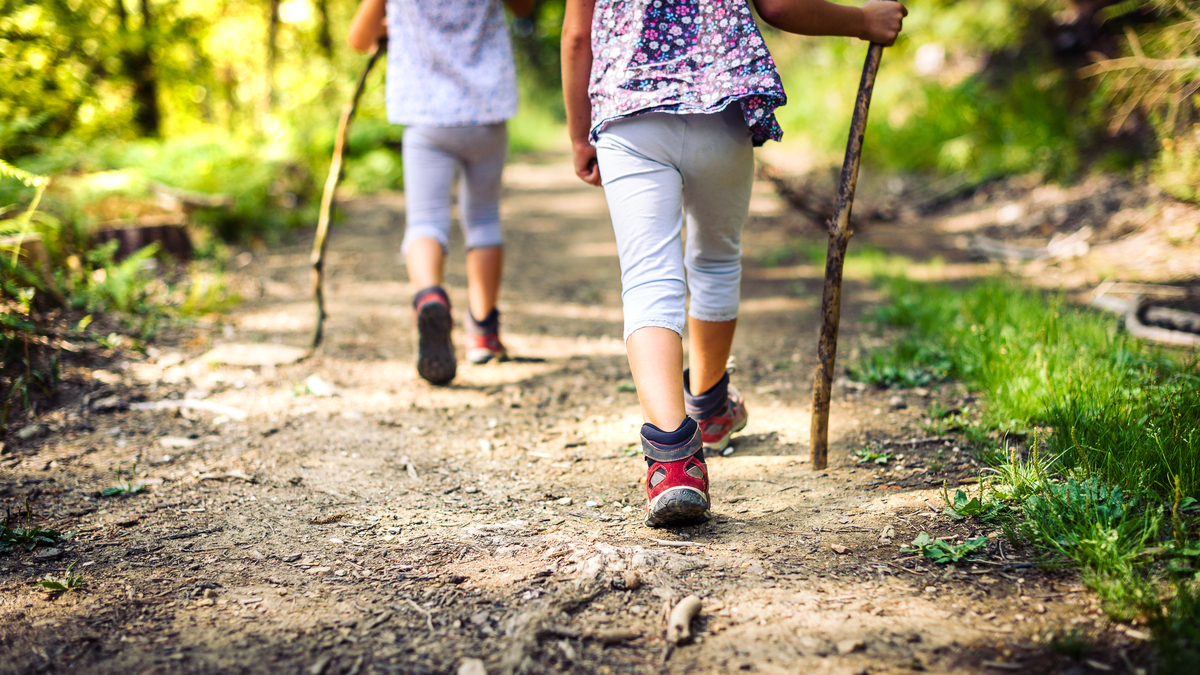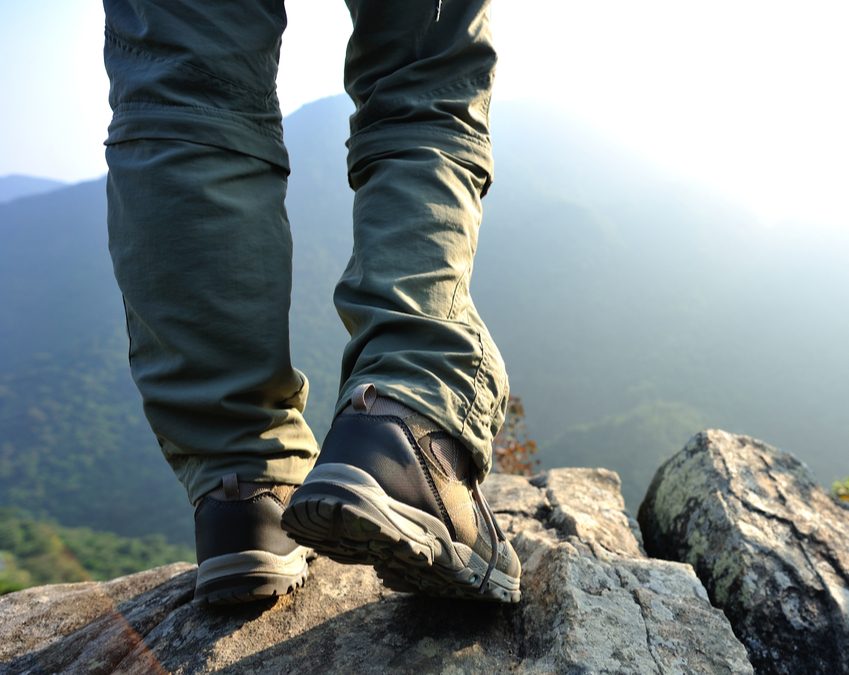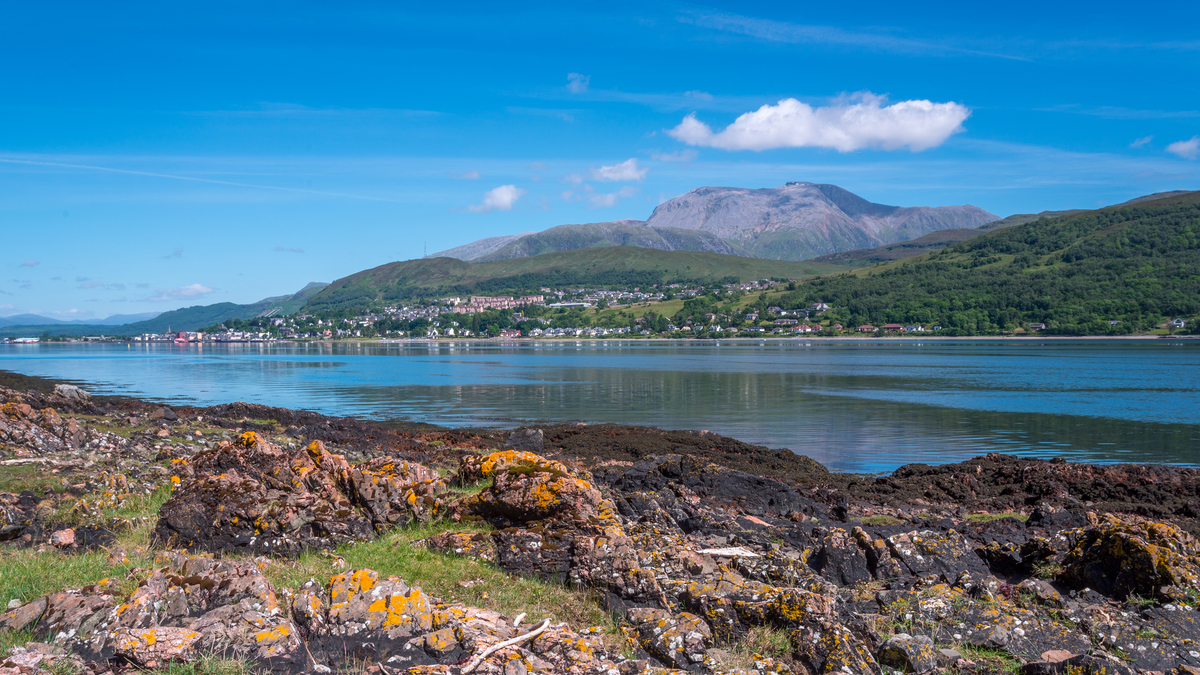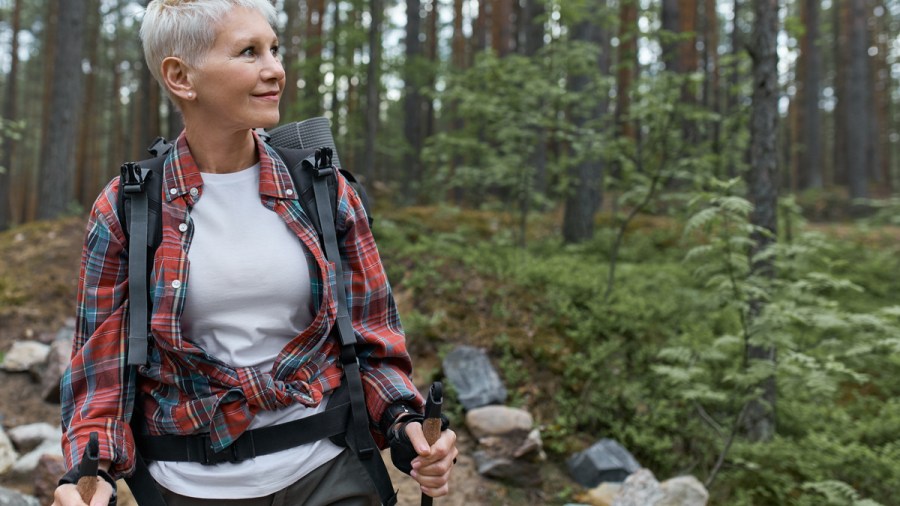Whether you walk alone or with company, in the countryside or in a city park, walking has incredible benefits for your mental health.
‘In every walk with nature one receives far more than he seeks,’ said conservationist and environmentalist John Muir, who died in 1914.
Over a century later, the global pandemic led to a surge in appreciation for the great outdoors, with Sport England figures showing that the majority of people used exercise to manage their mental health during lockdown, making the most of the permitted hour outside the home.
While there are a multitude of physical benefits to taking regular, brisk walks, the benefits to our mental health are extraordinary. Walking in nature can improve our attention span, mental clarity, creativity and ability to solve problems. It can help lift depression and feelings of anxiety, because it floods the brain with feel-good hormones.
 How walking therapy can help
How walking therapy can help
It’s something walking therapist, Carmen Rendell, wanted to incorporate into her work. ‘I start the day with a walk of my own, but I used to hold all my therapy sessions in the traditional way – inside,’ she says.
‘As I loved being outside, I wondered how I could combine my sessions with nature’s own therapy. I wanted to walk with my clients because I knew that the sights, sounds and smells we experience outside spark conversations we might not necessarily reach in a sterile, indoor environment.’
Five years ago, Carmen launched Soulhub (soulhub.co.uk) and started offering walking therapy. ‘We are part of nature and it’s where we should be,’ she says. With so much of our lives spent indoors, staring at screens, Carmen believes that even just a 20-minute walk has the power to disconnect us from our problems and connect us to a happier, healthier mindset.
Walking can take you out of day-to-day problems
‘Walking offers a distraction from the things causing us distress, be they noisy households or stressful jobs,’ Carmen explains. ‘At the same time, walking connects you to the world. I can tell so much about someone from how they walk.
‘If they are anxious, stressed, fretful, or worried, it’s evident in their pace and how they hold themselves. Some of my work is about gently reflecting that back because bringing an awareness to our existence helps us see clearly.’
In today’s fast-paced world, there’s a tendency to keep busy to avoid conflict, retrospection, and even intimacy. But in lockdown, we haven’t been able to distract ourselves with holidays and socialising – doing anything other than being with ourselves. ‘That’s why walking has had a profound effect on our collective wellbeing,’ Carmen says. ‘It offers space and time to just be.’
Nature provides a safe space
As we come out of the pandemic, we are all keen to hold on to the safe space nature has provided. ‘We face a hugely transformative time,’ she says. ‘Going forwards, whether you have access to endless fields or a small park, just stepping out of the house or office changes your energy.
It’s essential to block out that time every day because dedicating time to your wellbeing is a gift of great kindness. Wether you walk alone or with others the magic happens when you connect to yourself, your company, and your surroundings.
You can join Carmen’s online course, Soulwalking to Inner Peace (seven Days), by visiting her website soulhub.co.uk.
 The call of the wild
The call of the wild
For wilderness therapy facilitator Julia Gillick, from Sussex, walking is essential to wellbeing. ‘I grew up climbing mountains in Scotland and pitching tents on Dartmoor, but in my twenties, I became a teacher in London and worked 15-hour days. I rarely made time to walk or even be outside.’
Unable to ignore the call of the wild, Julia retrained as an expedition leader and launched ipse wilderness (ipsewilderness.co.uk), offering guided walking-talking holidays with wellbeing themes connected to the landscape. ‘There is freedom and simplicity in taking prolonged walks in nature and it’s this joy, confidence and sense of belonging I hope to bring to others,’ she says. ‘My ethos is that we journey inside, outside.’
While there’s a notable temporary feeling of happiness immediately after walking, it can also provide a more permanent sense of purpose and connection, thanks to something called eudaimonia.
Walking can help you live well
‘Eudaimonia is the condition of human flourishing and living well,’ explains Julia. ‘Eudaimonic wellbeing can be found through regular walking in nature, which offers peace, beauty and connection.’
Nature provides an ideal environment to engage in a different kind of attention. Instead of stressful attention, where your forehead and jaw is clenched, your mind lost to problems, you experience “soft fascination”, where you can notice bird song, flowers, and the wind in the trees. ‘Things you can simply enjoy,’ Julia adds.
Julia loves walking with other people, because of the way our pace and rhythm match when we walk together.
Honest conversations happen while walking
‘Walking alongside someone, you share the horizon. You’ve made a plan to walk together, you’re heading in the same direction,’ she says. ‘It frees you from the intensity of eye contact, which can be helpful during difficult conversations. The kind of conversations people have when they’re walking are more expressive, honest, and authentic. Something about nature supports that conversational space.’
Julia views the movement of walking as a therapeutic metaphor. ‘Walking is the embodiment of progress,’ she says. ‘And that can only be healing for whatever we’re working through.’
You can book onto a guided walk at ipsewilderness.co.uk
 ‘The first time I climbed Ben Nevis, I felt free’
‘The first time I climbed Ben Nevis, I felt free’
Sophie Hannington, 28, from Southampton, set up a walking and talking group to help people connect. Here, she tells her story of how walking transformed her life.
‘After a traumatic and chaotic childhood in foster care, I spent years homeless and suicidal, convinced no one was looking out for me and I was alone in the world. When I was 21, I started walking. It became my medication and my therapy. I never took antidepressants, because I felt it would mask the fact I had issues to deal with.
‘Instead, I listened to mindfulness podcasts while walking and realised the happier I felt, the less I resented the people who had hurt me in my childhood. The first time I climbed Ben Nevis, I stood at the top of the mountain and closed my eyes. I let go of my past and my headspace instantly cleared. I felt free. I skipped back down the mountain, feeling like a new woman.
‘I don’t think I’d be here if I hadn’t discovered walking’
‘I started mentoring young girls in the care system and became a YMCA trustee. I don’t think I’d be here if I hadn’t discovered walking.
‘I grew up longing for someone to come along and save me, but I saved myself. I still let go at the peak of every mountain I climb. Sometimes I have a big cry, but then I feel light and happy.
‘Now, I organise mental health walks along the south coast, called Walkie Talkies. People from different backgrounds unite to walk, talk, laugh, and sing. I invite my members to let go, forgive and conquer their mountains.
‘I feel more proud of Walkie Talkies than anything I’ve achieved in my life. It’s everything I ever wanted when I felt alone in the world.
‘Now, when I’m walking, I’m never alone. Even on a solo walk, I’m with the birds, squirrels, and butterflies. I’m with me, someone walking who has helped me learn to love.’
You can join Sophie’s Walkie Talkies on Facebook @Hanningtonswalkietalkies.
Find out how walking can also help support your gut health.







